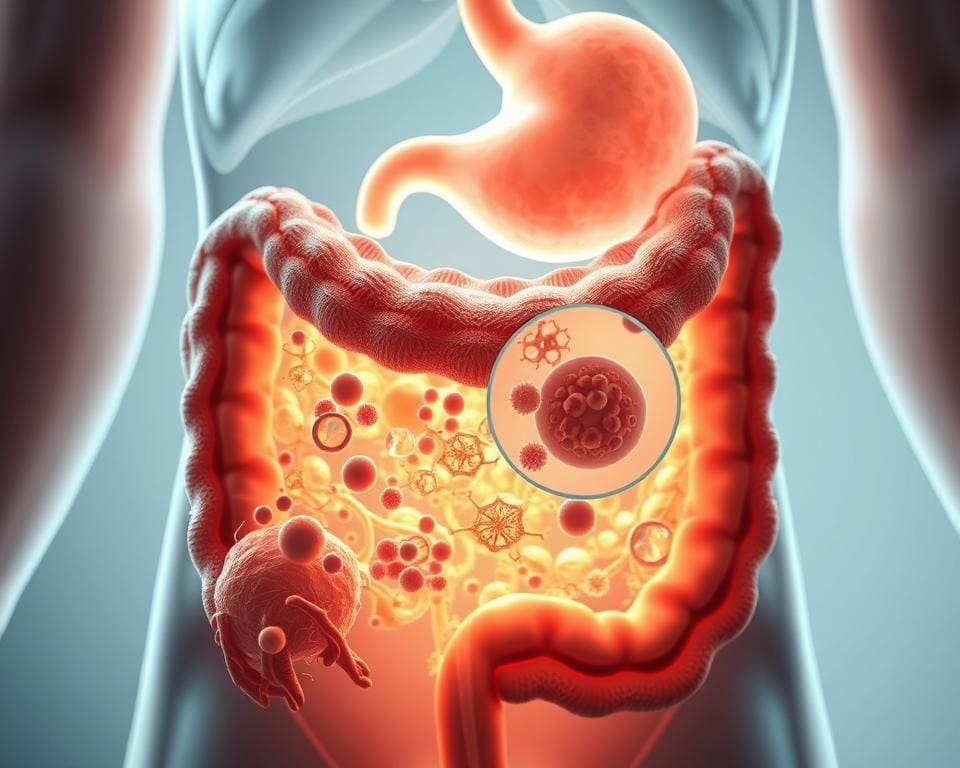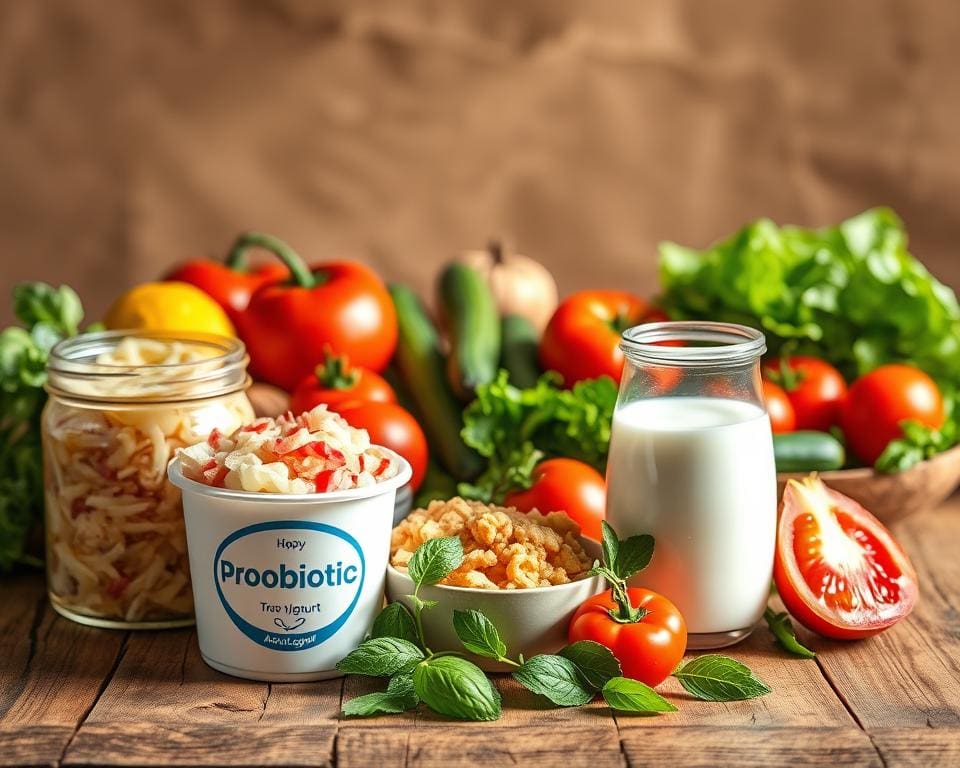In today’s health-conscious society, the buzz surrounding probiotic-rich foods is hard to ignore. But what exactly are these foods, and why should we incorporate them into our diets? Probiotics are live microorganisms that, when consumed in adequate amounts, offer profound health benefits. Understanding which foods have probiotics can empower you to enhance your gut health and overall well-being. Research shows that a balanced intake of foods high in probiotics can significantly support digestive health, immune function, and even mental clarity. Join us as we explore the remarkable world of probiotic-rich foods and their vital role in our daily diet.
Understanding Probiotics
When exploring the world of nutrition, one often encounters the term probiotics. Clarifying what they are delves into their essential role within the gut. Probiotics are live microorganisms frequently referred to as “good” or “friendly” bacteria. They support a balanced gut flora, which can significantly impact overall health. Found in various forms, such as Lactobacillus and Bifidobacterium, these beneficial organisms thrive in several probiotic-rich foods that we can incorporate into our diets.
What Are Probiotics?
Probiotics serve as a striking example of how beneficial bacteria can contribute positively to well-being. These microorganisms can be introduced into the system through consumption of certain foods and supplements. Their presence in the gut can promote digestive health, enhance immune function, and potentially offer other health benefits as well.
The Importance of Probiotics for Gut Health
Understanding probiotics goes beyond mere definition; it highlights the significance of gut health in our overall lifestyle. A well-maintained gut contributes to digestion, nutrient absorption, and even mood regulation. Incorporating foods rich in these beneficial bacteria can lead to improved gut flora, which supports a more robust immune system. Choosing the right probiotic-rich foods encourages not only physical vitality but mental wellness too.

Which Foods Have Probiotics
Discovering which foods have probiotics opens up a world of flavours and health benefits. Numerous delicious options are available, providing a rich source of beneficial bacteria. These foods not only enhance gut health but also introduce a range of essential nutrients into your diet.
Common Probiotic-rich Foods
Many common probiotic-rich foods can easily find a place in your daily meals. Here’s a selection of some favourites:
- Yoghurt: This beloved dairy product is packed with live cultures, which can enhance digestion and boost gut health.
- Kefir: A fermented milk drink, kefir is thicker than yoghurt and offers an even more potent probiotic profile.
- Sauerkraut: Fermented cabbage, sauerkraut provides beneficial bacteria along with vitamins C and K.
- Kimchi: This spicy Korean side dish is not only rich in probiotics but also offers an abundance of vitamins and antioxidants.
- Miso: Made from fermented soybeans, miso adds a unique flavour to dishes while providing good strains of probiotics.
- Tempeh: Another fermented soybean product, tempeh is a wonderful plant-based protein source packed with probiotics.
Incorporating these common probiotic-rich foods into your diet can significantly benefit your gut health, contributing to overall wellness. With such a variety of options, enjoying probiotics has never been more accessible or enjoyable.
Fermented Foods with Probiotics
Fermented foods with probiotics play a vital role in enhancing gut health and delivering essential nutrients. These foods undergo a fascinating fermentation process that transforms them into rich sources of beneficial bacteria. By understanding this process, one can appreciate the intricacies and advantages of incorporating such foods into their diet.
The Fermentation Process Explained
The fermentation process involves the action of microorganisms, such as bacteria and yeasts, which convert carbohydrates into alcohol or organic acids. This transformation not only enhances the flavour but also increases the digestibility of various ingredients. As these microorganisms thrive, they multiply, creating an abundance of probiotics that contribute to improved gut health.
Popular Fermented Foods to Try
Exploring different types of fermented foods can be an exciting journey. Some popular options include:
- Kefir – a tangy fermented milk drink
- Kraut – fermented cabbage rich in tangy flavour
- Kimchi – a spicy, fermented dish often made with vegetables
- Tempeh – a fermented soybean product that offers a nutty taste
- Yoghurt – a creamy treat packed with live cultures
Incorporating a variety of these fermented foods with probiotics into meals can provide both flavour and health benefits.
Best Probiotic Food Sources
Finding the best probiotic food sources is essential for anyone looking to enhance their gut health naturally. Local probiotic foods not only bring a wealth of benefits but also support the local economy. By sourcing these foods within your community, you enjoy fresher options and can cultivate a deeper connection with your food.
Local and Seasonal Options
Exploring local and seasonal options can yield a variety of flavours and nutrients. Foods such as:
- Traditionally made cheeses, which are rich in probiotics
- Sourdough bread that undergoes natural fermentation
- Seasonal vegetables, perfect for pickling or fermenting
These choices not only promote sustainability but also allow you to enjoy the freshest ingredients available. Supporting local farmers creates a more resilient community while you reap the probiotic benefits.
Plant-based Probiotic Sources
If plant-based options suit your lifestyle, consider these sources:
- Kefir made from coconut or almond milk
- Fermented foods like kimchi and sauerkraut
- Tempeh, a fermented soy product
- Miso, a staple in Japanese cooking
Incorporating these foods into your diet contributes not just to gut health, but they can also enhance overall well-being. Each bite supports the growth of beneficial bacteria, which is crucial for a healthy digestive system.
Top Probiotic Foods for Your Diet
Integrating probiotic-rich foods into your daily meals can transform your eating habits while enhancing your gut health. With a few simple adjustments, you can enjoy the benefits of the Top Probiotic Foods without sacrificing flavour or texture. Here are some practical ways to begin incorporating probiotics into your diet.
Incorporating Probiotics into Meals
Adding probiotic-rich foods to your diet might feel daunting at first. Yet, with creativity in the kitchen, it becomes effortless. Consider the following suggestions:
- Mix probiotic yoghurts into breakfast bowls or smoothies for a nutritious start to your day.
- Use fermented vegetables like sauerkraut or kimchi as toppings for salads or grain bowls.
- Incorporate miso broth as a base for soups, infusing your meals with rich umami flavours.
Recipes Featuring Probiotic-rich Ingredients
Inspiration can spark innovation in your cooking. Exploring recipes that highlight probiotic foods allows you to enjoy these ingredients in various dishes. Try these ideas:
- Start your day with a parfait of layers of probiotic yoghurt, fresh fruit, and granola.
- Prepare a zesty salad that includes fermented vegetables, leafy greens, and a tangy dressing.
- Whip up a comforting miso soup laden with tofu and seasonal vegetables for a nourishing meal.
Foods High in Probiotics
In the quest for better gut health, understanding the diverse array of foods high in probiotics can guide your culinary choices. From creamy dairy products to vibrant fermented vegetables, there is a rich selection that caters to varying dietary preferences. The Probiotic Food List includes items such as kefir, which is known for its tangy flavour and probiotic benefits, as well as traditional yoghurt that’s beloved for its versatility in breakfasts and snacks.
For those who prefer plant-based options, fermented foods like sauerkraut and kimchi offer a delightful crunch alongside a host of gut-friendly bacteria. Miso and tempeh are also excellent choices, not only adding depth to your meals but contributing to a balanced microbiome. With such a wealth of choices, there’s no need to limit your diet when seeking out the best sources of probiotics.
Integrating these foods high in probiotics into your daily meals can be a delicious adventure. Aim to include at least one probiotic-rich item in your diet each day. This could be as simple as enjoying a bowl of yoghurt with fresh fruit, or adding a dollop of kimchi to your stir-fry. Experimenting with different flavours and textures will not only enhance your meals but also enrich your overall health journey.









